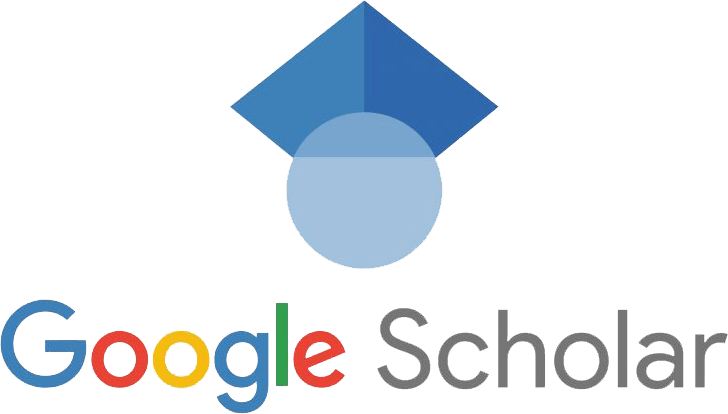About the Journal
The journal Investigación en Desarrollo y Gerencia Integral de Proyectos (IDGIP) is dedicated to publishing research results, primarily research articles. IDGIP defines these as original, unpublished works published in scientific, technological, or academic journals. These articles are the result of research, reflection, or review processes and have been evaluated and endorsed by peers as significant contributions to knowledge in the field (COLCIENCIAS, 2017). This publication's main purpose is to advance and deepen the generation of new knowledge, both practical and theoretical, on topics related to project development and management in Colombia and around the world.
IDGIP is an open-access journal that publishes peer-reviewed articles under a double-blind review process. The journal is published annually and does not charge fees for manuscript submission, processing, or publication, thus guaranteeing free and unrestricted access to knowledge for authors and readers alike. Similarly, the journal and all its articles are available to readers free of charge for consultation, viewing, downloading, or subscription.
Taking an interdisciplinary approach, the journal focuses on the generation, application, and transfer of knowledge related to the formulation, management, evaluation, and direction of projects in public, private, and social contexts. It is intended for researchers, professionals, academics, students, and decision-makers interested in the rigorous, applied study of project management in all its forms.
All content published in IDGIP is governed by a copyright policy under the Creative Commons Attribution-NonCommercial-ShareAlike (CC BY-NC-SA) license. This license permits the use and distribution of the content, provided that authorship is properly acknowledged and the content is not used for commercial purposes or shared under a different license.
IDGIP has the institutional support of the Universidad Escuela Colombiana de Ingenia Julio Garavito and does not receive external sponsorship. The university self-finances the publication as part of its commitment to disseminating knowledge scientifically.
It is currently available on the Internet Archive's Wayback Machine and is in the process of being included in digital preservation systems, such as LOCKSS and CLOCKSS. This ensures that the journal's contents will be permanently stored and continuously accessible, even if it ceases publication. Additionally, it complies with the privacy and confidentiality standards defined by the OJS platform, ensuring the protection of authors', reviewers', and readers' personal data.
ISSN: 2619-1830 (online).
Best Practice for Publishers
- Open Access and No Cost to Authors (No APC): The journal will operate under a diamond open access model, ensuring that both publication and reading are completely free for authors and readers, eliminating article processing charges (APC).
- Responsible Resource Management and Financial Transparency: Clear policies will be established for the efficient management of resources allocated to the journal. This includes full transparency in the use of funds, regular accountability, and optimization of expenses to maintain sustainability without resorting to APCs.
- Solid Institutional Funding and Support: The publishing institution is committed to providing consistent funding and structural support (technological infrastructure, personnel, training) to ensure the long-term stability and growth of the journal, consolidating its commitment to the dissemination of open knowledge.
- Standard Creative Commons Licensing: All published articles will be under a Creative Commons license (preferably CC BY or CC BY-SA), allowing for the free reuse, distribution, and adaptation of content, provided that appropriate credit is given to the original authors.
- Rigorous Peer Review Process: A rigorous and ethical double-blind or single-blind peer review system will be implemented and maintained, guaranteeing the quality, originality, and scientific relevance of accepted manuscripts.
- Adherence to International Ethical Standards: The journal is committed to following the guidelines of the Committee on Publication Ethics (COPE) and other international standards of good publishing practices, preventing plagiarism, ghost authorship, conflicts of interest, and other ethical breaches.
- Commitment to Diversity and Inclusion: Diversity of perspectives, methodologies, geographies, and genders among authors, reviewers, and editorial committee members will be promoted, seeking equitable representation and avoiding bias.
- Visibility, Indexing, and Digital Preservation: Indexing in the most relevant academic databases and directories (Scopus, Web of Science, Latindex, DOAJ, etc.) will be actively sought. In addition, the long-term preservation of content will be ensured through reliable digital archives (LOCKSS, PKP PN).
- Use of OJS: The journal will keep up to date with advances and updates made by the Open Journal System platform, with the aim of ensuring continuous improvement in the experience of authors, reviewers, and readers, and optimizing editorial workflows.
- Internationalization and Global Reach: The journal will encourage the submission of manuscripts from authors of diverse nationalities and the inclusion of internationally recognized members on the editorial board, seeking to expand the journal's impact and relevance worldwide.
- The OAI-PMH (Open Archives Initiative – Protocol for Metadata Harvesting) protocol is an international standard that allows for the collection, interoperability, and dissemination of metadata from articles published in the journal through automated systems.
- Thanks to its implementation in the OJS (Open Journal Systems) platform, the journal facilitates the indexing and visibility of its content in international academic databases, catalogs, and harvesters, ensuring greater presence and accessibility of published works.







